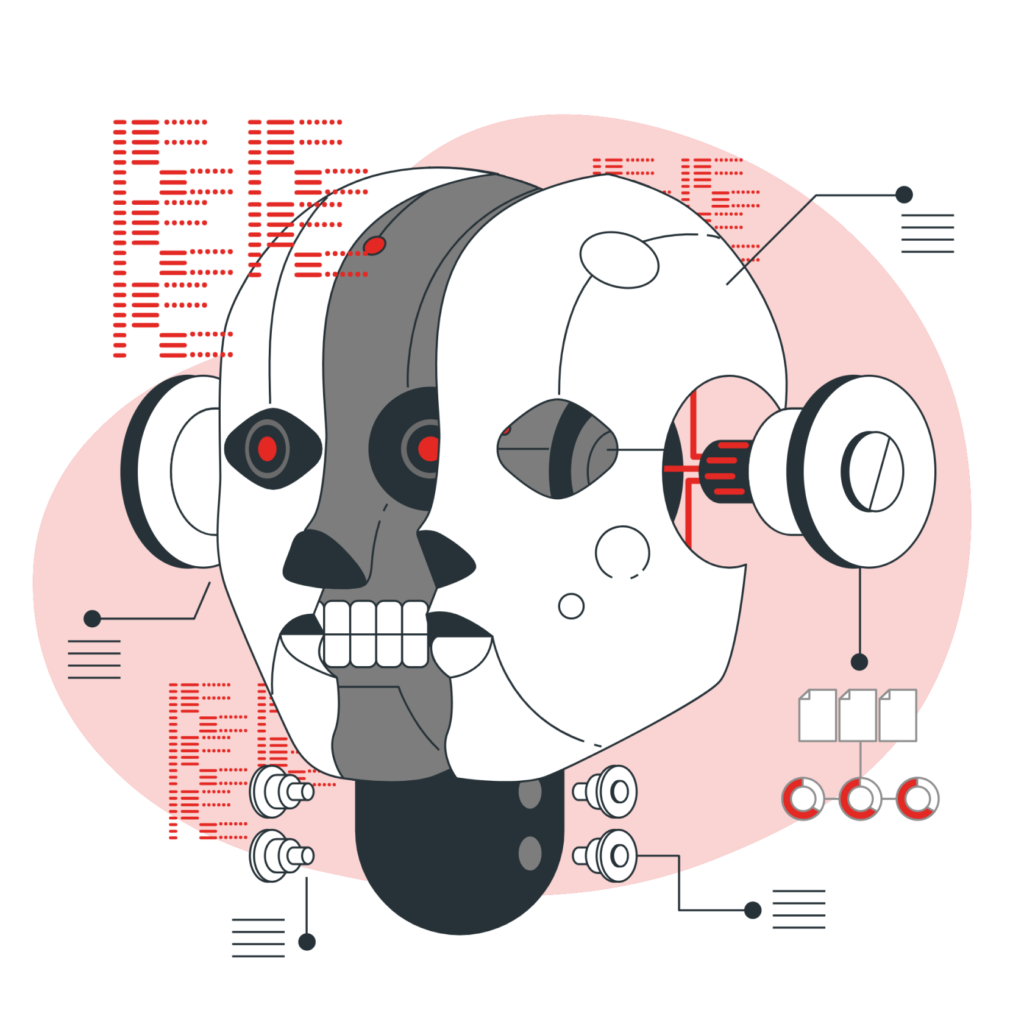Why Implement an AI-Based Recommendation System?
In our bustling digital world, where an overwhelming abundance of choices inundated every sphere of life, the ability to sift through and identify what truly matters to us has become increasingly paramount. Recommendation systems have emerged as an indispensable component of modern digital platforms, aiming to enhance user experiences by providing tailored suggestions and content. Among the various types of recommendation systems, those empowered by Artificial Intelligence (AI) stand out for their unparalleled accuracy and personalized precision. AI powered recommendation systems are a product of complex machine learning algorithms, deep learning techniques, and data analytics, all working harmoniously to decipher patterns and preferences from vast datasets.
Join us on this insightful journey as we uncover the potential of AI-based recommendation systems to revolutionize the way we navigate the digital realm, empowering both users and businesses with a symbiotic relationship that epitomizes the best of technological innovation and user-centric design.
What is a Recommendation System?
A recommendation system is a specialized software or algorithm that analyzes user behavior, preferences, and patterns to suggest items, content, or actions that the user is likely to be interested in. It’s a key component in various online platforms like e-commerce, social media, streaming services, and more. The system processes vast amounts of data, including user interactions, past choices, and community trends, to generate personalized recommendations.
There are several types of recommendation systems, including collaborative filtering, content-based filtering, hybrid systems, and AI-powered models. Collaborative filtering suggests items based on users with similar preferences, content-based filtering recommends items similar to what the user has liked before, and hybrid systems combine aspects of both. AI-based recommendation systems utilize advanced machine learning and deep learning techniques to provide highly accurate and personalized recommendations, making them increasingly popular in enhancing user experiences and driving business growth.
How AI Enhances Recommendation Systems
AI enhances recommendation systems by employing advanced algorithms to analyze vast amounts of data. Machine learning models, such as collaborative filtering and deep learning, learn from user behaviors, preferences, and item features. These models uncover complex patterns and relationships to generate more accurate and personalized recommendations. Natural language processing can understand textual content for better suggestions and make effective content-based recommendations.
AI also facilitates real-time updates and adaptation to changing preferences, ensuring the recommendations stay relevant. By integrating AI, recommendation systems optimize user satisfaction, engagement, and business outcomes through tailored and efficient item suggestions, fostering a seamless user experience.
Industries Benefiting from AI-Based Recommendation Systems
Retail
AI powered recommendations in retail platforms personalize product suggestions based on past purchases, browsing behavior, and demographic data. This increases sales, customer engagement, and brand loyalty. For example, Sephora uses AI to suggest beauty products based on a customer’s skincare routine and preferences.
Healthcare
AI-based recommendation systems help healthcare professionals by suggesting diagnoses, treatment plans, and medications based on patient data, symptoms, and medical history. This can lead to faster and more accurate healthcare decisions, ultimately improving patient outcomes.
Travel and Hospitality
AI powered recommendations in travel platforms suggest destinations, accommodations, and activities based on a traveler’s preferences, travel history, and reviews. This personalization enhances the overall travel experience, increasing customer retention and bookings.
Finance
AI-based recommendation systems in finance offer personalized financial advice, investment strategies, and budgeting tips based on an individual’s financial goals, risk tolerance, and spending patterns. This aids in achieving better financial outcomes and client satisfaction.
Food and Beverage
AI powered recommendations in food delivery apps like Foodpanda or restaurant platforms suggest personalized menus and offers based on a user’s past orders, dietary preferences, and location. This enhances user engagement and encourages repeat orders.
Understanding Content Based Recommendation Systems
Content-based recommendation systems analyze and recommend items based on their attributes, features, or content. These systems assess the characteristics of items (e.g., keywords, genre, and metadata) and user preferences to suggest similar items. For instance, in a movie recommendation system, it might suggest movies to a user based on their previously liked movies’ genres, actors, or themes. This approach aims to enhance user satisfaction by aligning recommendations with their specific interests and preferences, offering a personalized and relevant user experience.
Case Studies
Netflix
Netflix has a recommender system content based. By analyzing a user’s viewing history, genres, and movie attributes (e.g., actors, plot), Netflix suggests similar movies. If a user frequently watches action films with specific actors, the system recommends more action movies featuring those actors. This approach enhances user engagement by tailoring suggestions to individual preferences, promoting prolonged viewing and satisfaction.
Amazon
Amazon utilizes content-based recommendations. It analyzes a user’s purchase history, browsing behavior, and product attributes (e.g., category, brand) to suggest relevant products. For instance, if a user buys running shoes, the system recommends related products like workout gear or running accessories. This approach boosts sales by offering personalized suggestions aligned with user interests and purchase patterns, leading to an improved shopping experience and increased customer satisfaction.
Spotify
Spotify employs AI-powered recommendation systems to suggest music. By analyzing a user’s listening history, genre preferences, and song features, AI predicts and recommends similar tracks. If a user enjoys pop and listens to a particular artist, Spotify suggests other pop songs and artists with comparable styles. This AI-driven approach enhances user engagement and retention by delivering personalized playlists, catering to individual musical tastes and fostering a deeper connection with the platform.
Conclusion
Implementing an AI-based recommendation system offers a plethora of compelling reasons for businesses and users alike. This technology transforms user experiences by providing personalized and relevant suggestions, significantly enhancing engagement and satisfaction. By analyzing vast amounts of data, AI algorithms unveil intricate patterns and connections that would be otherwise impossible to discern. This leads to more accurate recommendations, optimizing decision-making and driving higher conversion rates. Ultimately, AI powered recommendation systems are not merely a technological feature; they are a strategic tool that empowers businesses to thrive in a competitive landscape, fostering customer loyalty and long-term success.
Want to build your own AI-Based Recommendation System?
Seeking a proficient and trustworthy AI provider for assistance with developing an AI-powered recommendation system? Schedule a discussion with our team to explore further insights on how we can assist you.
- Osama Ehsan
- 19 Sept 2023



